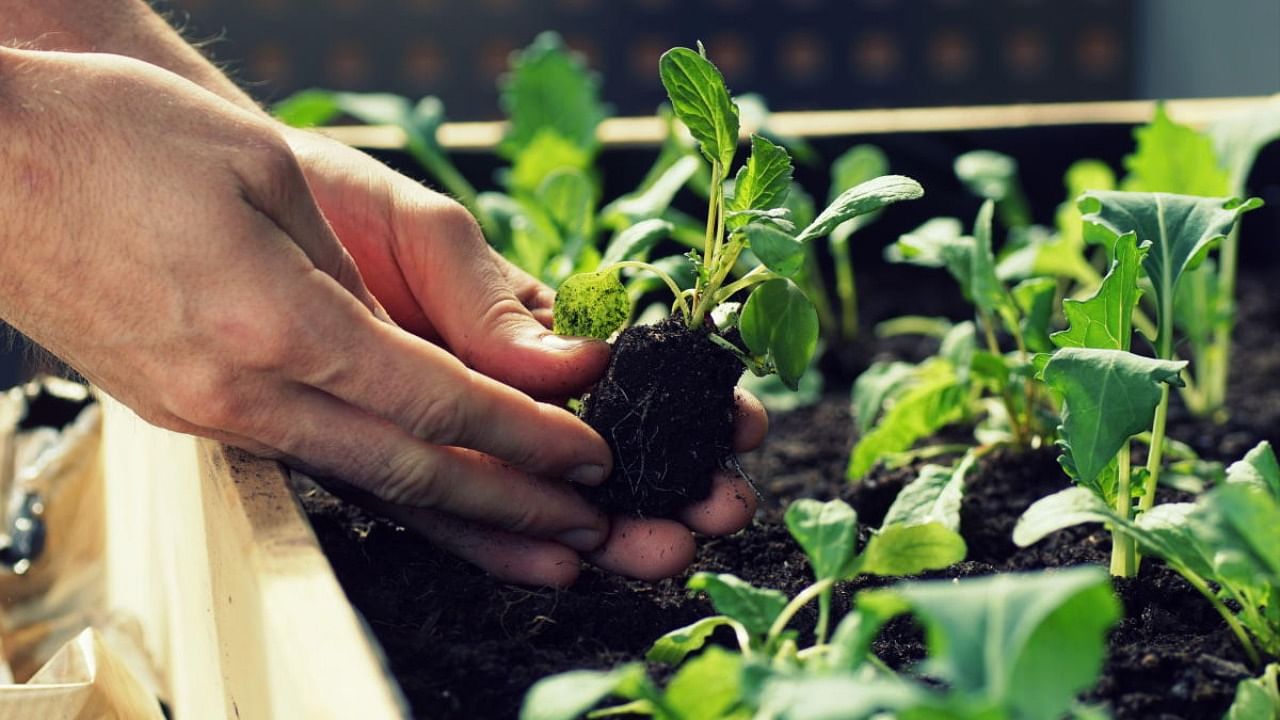
If the pandemic has taught us anything, it is never to take our health for granted. Most of us have now shifted to healthier, cleaner lifestyles and making conscious food choices is a big part of it. While buying organic produce and consuming clean products is a great start, growing your food in your gardens, balconies, terraces, even small patches of land can help you eat better in the long term.
Garden in my kitchen
Growing your fruit or vegetables with hardly any access to land may seem impossible, but many urban families are doing just that. Many of us grew up at a time when growing food—at least some vegetables—was common. A patch of land at home, a few flower beds in the lawn, or even ancestral family farms ensured that some percentage of your food was homegrown and fresh.
“I grew up seeing food growing around me,” said Kishi Arora, a Delhi based chef who grows much of the produce she uses in her home-delivery kitchen and bakery business. “My parents always grew food, so it was natural for me to follow suit, though I do it on my terrace. The pandemic gave me the time and chance to spend more time on my terrace than I could earlier, and I have seen my garden grow immensely in the past two years.”
Arora grows everything from cauliflowers to spinach to oranges and flowers.
“I always wanted to grow my food but started the journey about five years ago,” said Swati Seth, a social entrepreneur in Himachal Pradesh. “My intent of moving to the hills was to lead a slow, self-sufficient lifestyle, and this was a step in that direction.”
The pandemic was a chance to spend more time with her plants and gave a reason for her to wake up every day, even in the glum times. Today, in her small garden made up of pots and grow bags, she cultivates a variety of greens, tomatoes, vegetables, gourds, herbs, and even rajma.
Sustainable practices
Unlike commercial farms where chemical fertilisers and pesticides are always used, most urban farmers today rely on natural and sustainable practices and almost zero chemicals. Cow dung manure, vermicompost, and other natural manures and liquid fertilisers and pesticides are preferred for fortifying their plants and produce.
“We don’t use any chemical fertilisers at our farm. We rear cows for preparing panchakavyam (a mixture of cow dung, urine, milk, curd and ghee), komiyam (cow urine), cow dung manure and other natural organic fertilisers,” said Lakshminarayan Swaminathan of Chennai. His small farm is not only a source of clean food for his family but also a model of sustainable practices and seasonal farming.
Most of his agricultural produce is seasonal and geographical. It includes paddy, groundnut, grains, fruit, and coconuts.
Advice to aspiring farmers
“If you want to start growing your food, you must enjoy every aspect,” says Arora. “You can start small with seeds available at home like mustard, methi, chilli, coriander, tomato and get comfortable with that before moving to bigger plants. But it is a time-consuming activity that needs a lot of patience.”
Anubhuti Krishna is a writer passionate about travelling and eating. Her work has been featured in major publications. She hopes to write a book someday.